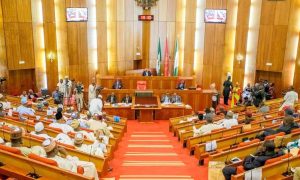This week, we spotlight recent developments in the Nigerian downstream oil & gas industry. This became pertinent, given that over 80.0% of economic activities in the country are reliant (directly or indirectly) on the dynamics in this industry to steer their daily operations and by extension, shape growth momentum. To start with, earlier on Tuesday, Nigeria’s business tycoon, Aliko Dangote, during a media briefing announced the commencement of Premium Motor Spirit (PMS) production from its 650,000bpd capacity refinery commissioned on the 22nd of May 2023, by former President Muhammadu Buhari. This development marked a watershed moment in Nigeria’s history, given that none of the state-owned major refineries has produced refined products for consumption in about 28 years.
Over the past decade, PMS scarcity and price volatility have become a recurring crisis in Nigeria, with negative knock-on effects on businesses and households through supply chain and mobility disruptions. Oftentimes, this ugly development is accompanied by a surge in the general price level and the collapse of many small-to-mid-sized businesses, thereby stoking an increased rate of poverty. For many years now, Nigeria has heavily relied on imported petroleum products (including PMS) to meet local demand, as its three state-owned refineries –Warri, Port Harcourt, and Kaduna with a combined production capacity of 445,000bpd – have remained moribund despite expending over $20.0bn on turnaround maintenances.
Aside from this setback (moribund state of refineries), which reflects weak political will to achieve energy independence, the inadequate state of available economic infrastructures such as power and mass transit, has necessitated PMS subsidy payments over the years to ease cost burden on businesses and households (about ₦10.0tn was paid on PMS subsidy between 2017 and mid2023 according to FG’s data). Sadly, the PMS subsidy regime has been largely characterized by opaqueness and corruption. For context, Nigeria with a population, GDP per capita, motorable road network, and vehicular population of about 232.1m, $1,621, 195,000km, and 12.5m respectively, reportedly consumes between 44.3m and 90.0m liters of PMS daily. This represents between two to four-fold the size of daily consumption in Pakistan with a similar population (251.3m) and GDP per capita ($1,407), but a higher motorable road network (263,775km) and vehicular population (17.0m).
As such, the commencement of PMS production by the Dangote refinery and its expected supply to the Nigerian market in the coming weeks should help provide clarity around actual daily PMS consumption volume in Nigeria. In addition, the full-scale operation of the refinery should help halt the repeated cases of PMS scarcity episodes, eliminate avoidable price markups (e.g., freight cost, NIMASA charge, and storage cost) on domestic PMS supplies, and reduce monthly importation bills by 30.0% to 40.0% thereby stemming FX demand in the mid-to-long term.
In a related development, the management of NNPCL retail in a circular issued on Tuesday to all its outlets nationwide directed that PMS pump prices be reviewed upward from a range of ₦588 – ₦617/liter to ₦855 – ₦897/liter, effective immediately. This pronouncement which marked the third upward price review since President Tinubu declared that “subsidy is gone” during his inauguration on the 29th of May 2023, is coming barely seven weeks after PMS scarcity began to resurface across many states. The latest price increase is coming on the heels of NNPCL admitting to owing its foreign suppliers of refined PMS about $6.8bn, two months after initially denying the same revelation from an international news outlet, Thomas Reuters. Interestingly, the President Tinubu-led government has insisted that no PMS subsidy was paid since assuming office, even though his administration approved that a substantial share of the ₦3.3tn profit recorded by the NNPCL in 2023 be used to fund what is dubbed “PMS under-recovery.”
Based on our estimate of PMS landing cost and associated distribution margins using a 2016 pricing template by the Nigerian Upstream Petroleum Regulatory Commission (NUPRC, formerly Department of Petroleum Resources or DPR), the claim that no subsidy is paid on PMS does not hold waters. For instance, using exchange rate of ₦1,626/$ (as of 4th Sept 2024) and crude oil price of $73.34/bbl., a market-reflective price per liter of PMS should range between ₦1,438 to ₦1,484. Beyond this arithmetic exercise, the main question around PMS subsidy payment is the opaqueness of its management, which in turn, has undermined the political will to get the nation’s refineries fixed.
Even with the breakthrough in the Dangote refinery, the PMS scarcity episode may remain a lingering crisis if enabling environment is not created for the refinery and other upcoming ones to thrive. Recall that the management of the Dangote refinery has on many occasions lamented about the inadequate supply of crude to it by NNPCL and other local upstream players. In all, we hold that ending PMS scarcity and other structural crisis in Nigeria would require first, strong political will from the FG and sub-nationals, as there is little that a single private entity can do to deliver an economy with over 200.0m population from a resource curse conundrum.
Afrinvest



























